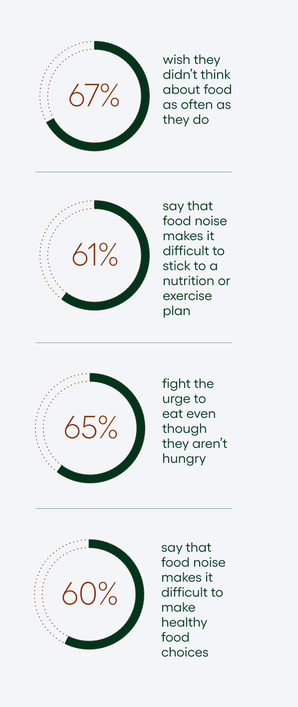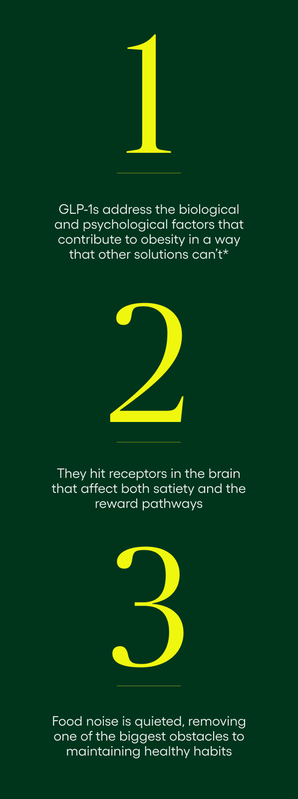Beyond Hunger: Understanding Food Noise [QUIZ]
Do you hear food noise?


You ate lunch ten minutes ago, but the brain chatter has already begun. What’s in the fridge? Is there still cereal left in that box? When should I eat dinner?
Thinking about food is a natural part of everyone’s day. But for many people, the thoughts are nonstop and inescapable. This isn’t hunger—this is food noise.
Q U I Z
Do you hear food noise?
We’ve known about food noise for years, but there’s never been a way to really measure it–until now. The WeightWatchers science team teamed up with researchers at the Pennington Biomedical Research Center to create the first-ever Food Noise Questionnaire to help assess the intensity of your food noise and identify the right treatment.
3 fast facts
Food noise can:
✓ Happen to anyone, and its intensity can vary due to genetics and many other factors
✓ Occur even when you’re not hungry, making it difficult to stick to healthy routines
✓ Be triggered by your environment, mood, or health conditions
The weight connection
While anyone can experience food noise, it’s most common (and disruptive) for people living with overweight and obesity. Why? When your brain is stuck on a constant loop about food, it can make the already difficult task of losing weight feel downright impossible.
The data confirms this. In 2023, WeightWatchers teamed up with the STOP Obesity Alliance at George Washington University to survey a diverse group of Americans about food noise.
Of those living with overweight or obesity:*


*Methodology: The “Beyond Hunger: Understanding Food Noise” report was developed in 2023 using consumer data collected by Havas’ research consultancy, TRIPTK, on behalf of WeightWatchers and the STOP Obesity Alliance at George Washington University. The survey was done online among 1,174 Americans living in diverse bodies. 264 of those surveyed have a BMI of under 25 (not living with overweight or obesity), 284 have a BMI of 25 - 29 (living with overweight), and 454 have a BMI of 30+(living with obesity). 295 of all those surveyed were using GLP-1 medications.
To learn more about the study, view the full consumer trend report.
How to quiet the chatter
There are some non-medical ways to ease food noise (managing stress, getting enough good sleep, eating fiber or protein) but GLP-1 weight-loss medications reduce food noise and decrease appetite, making it easier to lose weight and get healthier.
But how do they work, exactly?


Lower food noise. Lose weight.
Ready to turn down the volume? WeightWatchers has strategies that can work for every body, from weight-loss medication access to our proven Points program, to personalized registered dietitian counseling and more.
